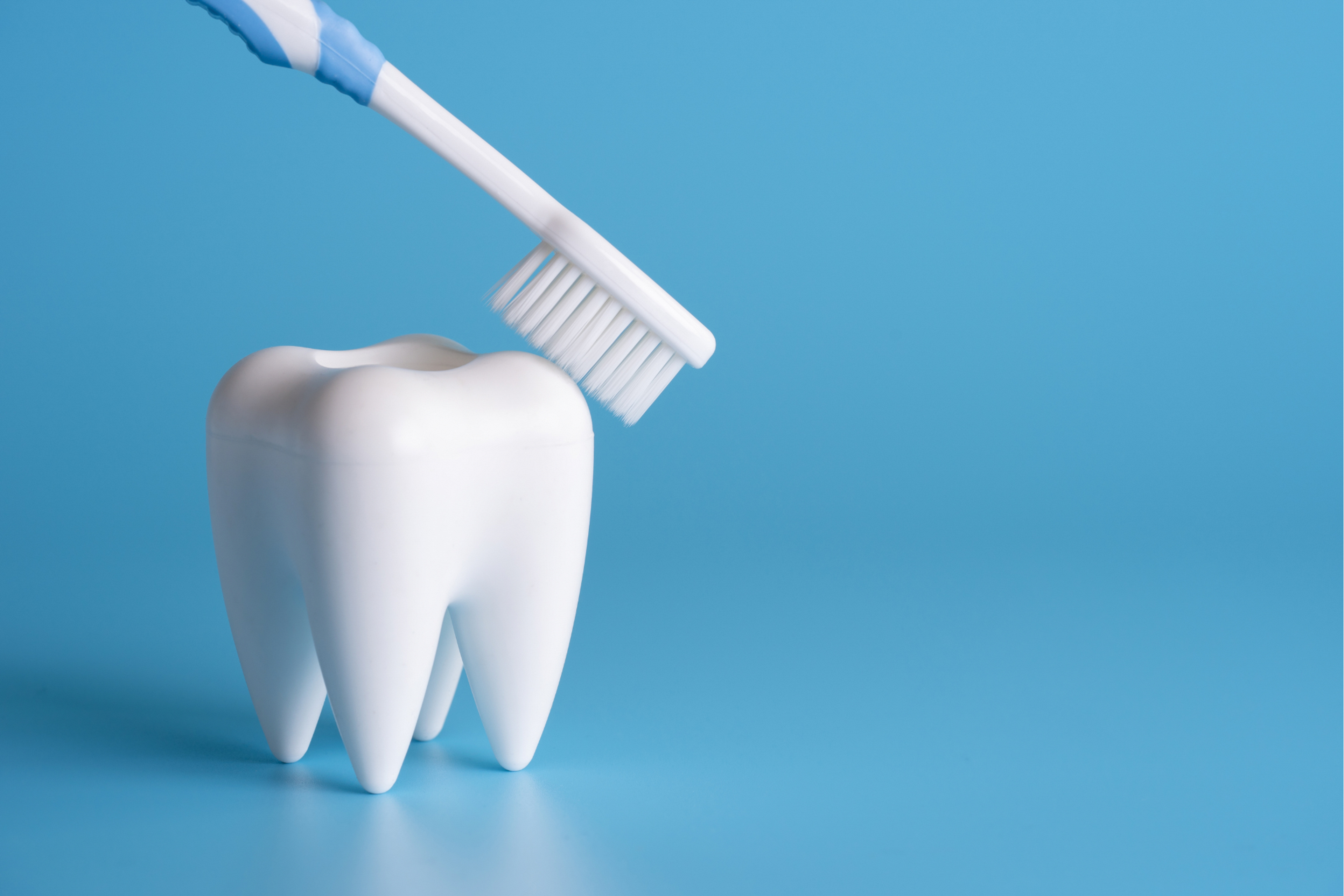Dental School Acceptance Rates: Factors and Strategies for Admission
Are you considering applying to dental school? Learn about the factors that affect acceptance rates and strategies for improving your chances of admission in our comprehensive guide.
Posted March 6, 2025

Table of Contents
The Dental School Admissions Process
The dental school admissions process can be complex and overwhelming, but it can be broken down into a few basic steps. In general, the application process involves:
- Research and select schools to apply to
- Take the DAT
- Submit your AADSAS application
- Transcript
- DAT score(s)
- Letters of evaluation
- Academic history
- Personal statement
- Awards/honors
- Submit secondaries
- Interview
- Accept admission offers!
The first step is to research potential dental schools and their admission requirements. Dental schools typically require students to have completed a certain number of prerequisite courses in biology, chemistry, and physics. They also usually require students to take the Dental Admission Test (DAT).
After you've completed the necessary courses and taken the DAT, the next step is to submit your application. There is one application, the AADSAS, that’s similar to the Common App and that you will submit to all dental schools you’re applying to. It includes your personal statement, letters of recommendation, transcripts, and a couple of other parts. Many schools will extend a secondary application to applicants they’re interested in. These usually involve two to five supplementary questions so they can get to know the candidate better. Finally, you'll be invited to attend an interview at the dental school. The interview is your chance to make a good impression and demonstrate your passion for dentistry.
It's important to note that the dental school admissions process can be competitive. Many applicants have excellent grades and test scores, so it's important to stand out in other ways. This could include volunteering at a dental clinic, participating in research projects, or holding leadership positions in student organizations. With the right approach – and coaching – you can get into the school of your dreams. Let’s dive in.
Key Factors that Affect Dental School Acceptance Rates
There are several key factors that affect dental school acceptance rates. One of the most important is your academic record. Dental schools typically look for students with high GPAs and DAT scores. But they also consider other factors such as extracurricular activities, volunteer work, and research experience. They want to see that you're well-rounded and committed to making a difference.
Another factor that can affect acceptance rates is the number of seats available in the dental program. Dental schools receive many more applications than they have spots for, so it's important to apply to multiple schools to increase your chances of acceptance, including a mix of reach (your stats are below the average), target (your stats match the average), and safety (your stats are above average).
The most competitive and selective dental schools are usually those with strong reputations for academic excellence, cutting-edge research opportunities, and comprehensive clinical training programs. These institutions often boast low acceptance rates and high standards for admission, including exceptional DAT scores and GPAs. Additionally, they provide access to advanced technology and facilities, extensive networks of alumni and professionals in the field, and opportunities for interdisciplinary collaboration. Graduates from such schools are highly sought after, benefiting from both the rigorous education they receive and the prestigious affiliations of their alma maters.
Dental School Acceptance Rates of the Top 50 Dental Schools
| School | Acceptance Rate |
| Harvard Dental School of Medicine | 3.5% |
| Columbia University College of Dental Medicine | 5.6% |
| New York University College of Dentistry | 12.4% |
| University of California at Los Angeles School of Dentistry | 5.9% |
| University of Michigan School of Dentistry | 6.5% |
| University of Pennsylvania School of Dentistry | 6.8% |
| University of the Pacific Arthur A. Dugoni School of Dentistry | 6.8% |
| University of California at San Francisco School of Dentistry | 4.3% |
| University of North Carolina at Chapel Hill Adams School of Dentistry | 5.9% |
| University of Washington School of Dentistry | 9.3% |
| University of Texas Health Houston School of Dentistry | 10.5% |
| University of Florida College of Dentistry | 5.5% |
| Texas A&M University School of Dentistry | 9.0% |
| Stony Brook University School of Dental Medicine | 4.1% |
| University of Texas Health San Antonio School of Dentistry | 9.9% |
| Temple University Maurice H. Kornberg School of Dentistry | 4.7% |
| University of Iowa College of Dentistry & Dental Clinics | 9.8% |
| University at Buffalo School of Dental Medicine | 4.1% |
| Rutgers School of Dental Medicine | 3.8% |
| University of Minnesota School of Dentistry | 9.6% |
| University of Connecticut School of Dental Medicine | 4.0% |
| Ohio State University College of Dentistry | 10.5% |
| University of Maryland School of Dentistry | 5.3% |
| Virginia Commonwealth University | 4.8% |
| Augusta University Dental College of Georgia | 9.2% |
| University of Southern California Herman Ostrow School of Dentistry | 6.1% |
| University of Illinois at Chicago College of Dentistry | 5.8% |
| Boston University Henry M. Goldman School of Dental Medicine | 5% |
| University of Alabama at Birmingham School of Dentistry | 6.4% |
| University of Colorado School of Dental Medicine | 3.7% |
| Indiana University School of Dentistry | 8.5% |
| University of Kentucky College of Dentistry | 5.8% |
| University of Nevada, Las Vegas School of Dental Medicine | 8.8% |
| University of Pittsburgh School of Dental Medicine | 5.2% |
| University of Tennessee Health Science Center College of Dentistry | 7.2% |
| University of Utah School of Dentistry | 10.4% |
| Case Western Reserve University School of Dental Medicine | 3.2% |
| Creighton University School of Dentistry | 5.7% |
| University of Missouri-Kansas City School of Dentistry | 12.8% |
| University of Louisville School of Dentistry | 6.1% |
| Marquette University School of Dentistry | 4.4% |
| University of Oklahoma College of Dentistry | 7% |
| University of Nebraska Medical Center College of Dentistry | 8.8% |
| Tufts University School of Dental Medicine | 5% |
| Nova Southeastern University College of Dental Medicine | 5.4% |
| Dental College of Georgia at Augusta University | 11.3% |
| University of Mississippi Medical Center School of Dentistry | 29.4% |
| University of Detroit Mercy School of Dentistry | 9.4% |
| University of New England College of Dental Medicine | 8.1% |
| Howard University College of Dentistry | 6.5% |
Our Top Strategies for Getting Into Dental School
1. Focus on your narrative.
Admissions committees are not accepting robots, they are accepting real people with unique experiences and motivations. The best candidate profiles are those that are cohesive, personal, and compelling. There should be a clear thread between where you have come from, where you are going, and how dental school plays a role. Before starting your application, think through the following questions – they will help guide your personal application strategy:
- Where does your interest in dentistry come from? Was there a specific moment that changed your trajectory, or a series of experiences?
- Why do you want to become a dentist? Be as specific as possible.
- In what ways do you believe dental school will help you achieve your professional objectives?
- How does your background and perspective differentiate you from other candidates?
- What are the core values or themes that you want to highlight in your application? What values/themes have driven the majority of your decisions thus far?
- What challenges have you faced, and how did you overcome them? What did you learn from them?
2. Make sure you have the bases covered with your foundations.
If you’re applying to competitive programs, you will want to make sure that your stats at least reach the averages of the profile of the most recent incoming class. Most schools publish this information online – for example, see Columbia’s dental class statistics, including average DAT scores, GPA, age, and more here.
Look at the stats for all of your target schools and use them as a guide for measuring your performance on the DAT. If you’re still in school, also pay attention to cumulative and science GPAs. You can always take post-bacc courses after graduating if your grades for certain prerequisites are lower than they should be.
3. Get help from an expert.
The best way to make sure that your application is as strong as it could be is to get an expert, third-person perspective on it. Someone with admissions experience will be able to holistically examine the strengths and potential weaknesses of the application as a whole, and each individual part to make sure that you are telling your story in the most powerful way possible. Whether it’s tip-to-tail support, essay brainstorming and editing, letter of evaluation strategy, or secondary application help, a coach brings a level of personalized, objective support that is hard to get from peers. Find your dental school coach.
Dental School Acceptance Rate FAQs
Which dental school has the highest acceptance rate?
- The University of Mississippi has one of the highest dental school acceptance rates, around 29.4%. This rate is significantly higher compared to many other dental schools.
What are the hardest dental schools to get into?
- Harvard Dental School of Medicine (3.5%), University of Colorado School of Dental Medicine (3.7%), and Case Western Reserve University School of Dental Medicine (3.2%) are the most difficult dental schools to get into because of their low acceptance rates.
What GPA do I need for dental school?
- You will need a GPA of 3.5 or above for the best chance of getting into dental school.
What is the lowest GPA to get into dental school?
- The lowest GPA generally considered for dental school admission is around 3.0. However, applicants with higher GPAs are more competitive. Besides GPA, dental schools also evaluate DAT scores, letters of recommendation, personal statements, and relevant experiences.
When do dental school acceptances go out?
- Dental school acceptances typically go out starting in December and continue through the spring. The exact timing can vary by school, but many schools begin notifying applicants of their acceptance on December 1st. Notifications may continue into April or May, depending on the school's admissions process and the applicant pool.












